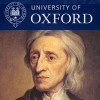Relevant Links
Professor Robert Stalnaker is the Laurance S. Rockefeller Professor of Philosophy at the Massachusetts Institute of Technology and is a Fellow of the American Academy of Arts & Sciences.
His teaching and research interests are in philosophical logic, the philosophy of mind, and the philosophy of language. He is the author of Inquiry (Bradford Books, 1984), of a series of papers on the logic and semantics of conditionals, most of which are included in an anthology on conditionals, Ifs, edited by W. Harper, G. Pearce, and Stalnaker (Reidel, 1981), and of a number of articles on the semantics and pragmatics of natural language [for example, "Pragmatics," Synthese, 22 (1970) and "Presuppositions," Journal of Philosophical Logic, 2 (1973)]. His two volumes of collected papers are: Context and Content (Oxford, 1999), and Ways a World Might Be (Oxford, 2003). Current work in progress concerns the philosophical foundations of "possible worlds" semantics for modal and conditional logics, and uses of this semantic framework to help clarify metaphysical questions about necessity and possibility, concepts of knowledge, common knowledge and mutual belief, inductive reasoning, rational decision-making, and the relation between modality and quantification.
| # | Episode Title | Description | People | Date | |
|---|---|---|---|---|---|
| 6 | 2007 Lecture 6: Knowing what we are thinking | The sixth lecture will try to resolve a familiar tension between externalism about mental content and the assumption that we have some kind of privileged knowledge of the contents of our own thoughts. | Robert Stalnaker | 10 Jul 2008 | |
| 5 | 2007 Lecture 5: Acquaintance and essence | Russell held that we must be acquainted with the constituents of the contents of our thoughts, and remnants of this doctrine persist in the work of a number of more recent philosophers. | Robert Stalnaker | 10 Jul 2008 | |
| 4 | 2007 Lecture 4: Phenomenal and epistemic indistinguishability | The fourth lecture will begin with a variation on the thought experiment about Mary that is the focus of the knowledge argument, using it to develop the analogy between self-locating knowledge and knowledge of phenomenal experience. | Robert Stalnaker | 10 Jul 2008 | |
| 3 | 2007 Lecture 3: Locating ourselves in the world | One strategy for responding to the knowledge argument exploits an analogy between knowledge of phenomenal experience and essentially indexical or self-locating knowledge. | Robert Stalnaker | 10 Jul 2008 | |
| 2 | 2007 Lecture 2: Epistemic possibilities and the knowledge argument | The second lecture will begin with Frank Jackson's knowledge argument. The argument and the responses to it turn on assumptions about the nature of the contents of belief and the objects of knowledge. | Robert Stalnaker | 10 Jul 2008 | |
| 1 | 2007 Lecture 1: Starting in the middle | Our topic is a subject's knowledge of his own phenomenal experience and of the content of his thought, but I will approach the topic from the outside, treating the subject as an object in the world. | Robert Stalnaker | 26 Jun 2008 |

